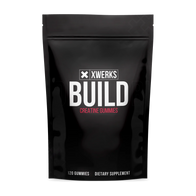Picture yourself standing on the edge of a crystal-clear, frigid lake or a specially designed ice bath, the chill in the air sending shivers down your spine. You take a deep breath, muster up your courage, and then, with a splash, you immerse yourself in the icy waters.
This is cold plunging, a practice that has gained popularity in recent years for its remarkable health benefits. While the idea of willingly subjecting oneself to such cold temperatures may seem counterintuitive, there is a growing body of evidence suggesting that cold plunges can provide a myriad of physical and mental advantages.
1. Enhanced Circulation
One of the primary benefits of cold plunges is their ability to enhance circulation. When your body is exposed to cold water, the blood vessels constrict (a process known as vasoconstriction) in an attempt to preserve heat. Once you exit the cold water, your body experiences vasodilation, where blood vessels expand.
This cycle of constriction and expansion is like a workout for your circulatory system, helping to improve overall blood flow and circulation. Improved circulation can have a range of positive effects on your health, including better oxygen delivery to muscles and organs.
2. Reduced Muscle Inflammation and Pain
Athletes and fitness enthusiasts have long used cold therapy, including cold plunges, to reduce muscle inflammation and soreness. The cold water helps to minimize the release of inflammatory substances and constrict blood vessels, which can help alleviate pain and speed up the recovery process after intense physical activity. Cold plunges are often integrated into training routines to help athletes recover more quickly and perform at their best.
3. Enhanced Mood and Mental Clarity
Cold plunges are not only good for your body but also for your mind. When you immerse yourself in cold water, your body releases endorphins, often referred to as "feel-good" hormones.
These endorphins can lead to an immediate improvement in mood, reducing symptoms of anxiety and depression. Cold water exposure can also help increase mental clarity and alertness, making it an excellent way to start your day with a burst of energy.
4. Improved Immune Function
Cold plunges can give your immune system a boost. Exposure to cold water stimulates the production of white blood cells, which are essential for fighting off infections and illnesses. Regular cold water immersion may help you become more resilient to common colds and other illnesses.
5. Stress Reduction
The shock of cold water can be a powerful stressor, but paradoxically, it can also be an effective stress reducer. When you take a cold plunge, your body goes into a state of heightened stress, triggering a natural "fight or flight" response. Over time, with regular exposure, your body becomes more adept at managing stress, leading to reduced overall stress levels in daily life.
6. Enhanced Skin and Hair Health
Cold water is known for its beneficial effects on the skin and hair. Cold plunges can help improve the appearance and health of your skin by tightening pores, reducing puffiness, and increasing blood flow to the surface. Additionally, cold water can make your hair shinier and more resilient by closing hair cuticles and reducing damage.
Potential Negative Impacts of Cold Plunges
While cold plunges can offer benefits for workout recovery, it's essential to recognize that they might not be suitable for everyone, and in some cases, they can have negative effects on the recovery process. Here are some potential downsides and considerations:
1. Impaired Muscle Adaptation
One of the primary concerns with cold plunges in the context of workout recovery is their potential to interfere with the body's natural adaptive response to exercise. Exercise-induced inflammation and oxidative stress are essential signals that prompt the body to adapt and become stronger.
Cold water immersion's ability to reduce inflammation could potentially blunt this adaptive response, impairing long-term gains in strength and endurance. While cold plunges may help with immediate recovery, they might not be ideal for those seeking to maximize long-term training adaptations.
2. Decreased Muscle Protein Synthesis
Cold water immersion has been associated with a reduction in muscle protein synthesis (MPS), the process by which your body builds new muscle tissue. MPS is a crucial component of muscle recovery and growth.
Some studies suggest that cold water immersion immediately after intense exercise may slow down MPS, which could hinder muscle repair and growth.
3. Reduced Heat Adaptation
In some sports and activities, heat adaptation is essential for optimal performance. Cold water immersion may interfere with the body's ability to adapt to heat stress, which is necessary for athletes who compete in hot conditions. This can be a concern for individuals training for events such as marathons or endurance races in warm climates.
When To Plunge
For those seeking to maximize the myriad benefits of this practice, the morning emerges as an ideal time.
A morning cold plunge serves as a wake-up call for the body and mind while also avoiding the potential negative impacts on post workout recovery.
Moreover, establishing a consistent morning routine for cold plunging can contribute to long-term well-being by ensuring that you reap the cumulative rewards of this practice.
While the morning may not be the only suitable time for cold plunges, it certainly offers a compelling array of advantages, making it a prime choice for those looking to harness the full potential of this invigorating and transformative experience.






















